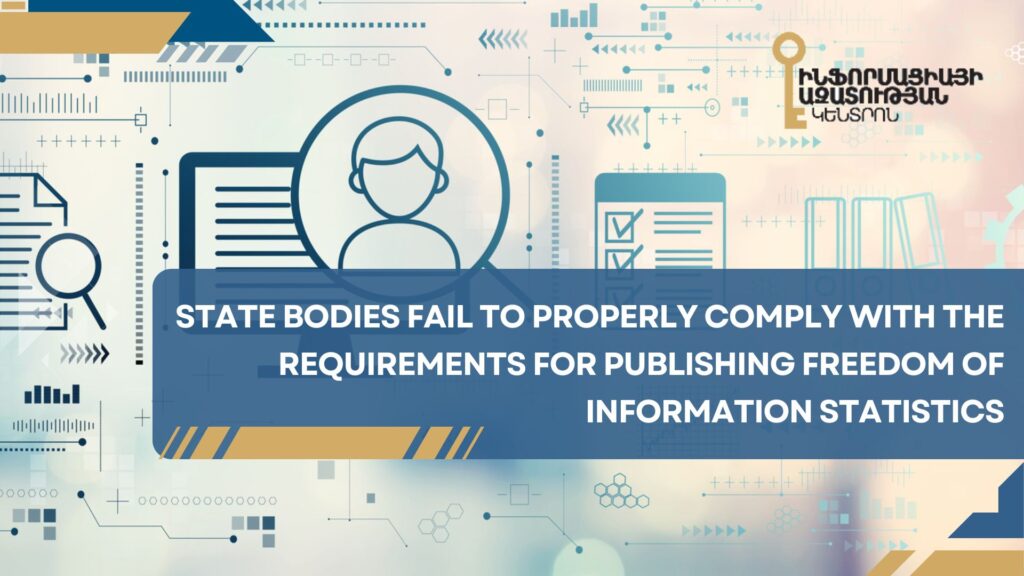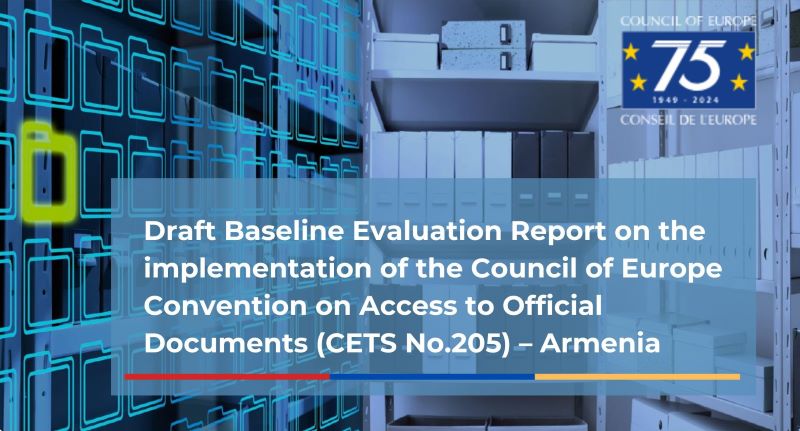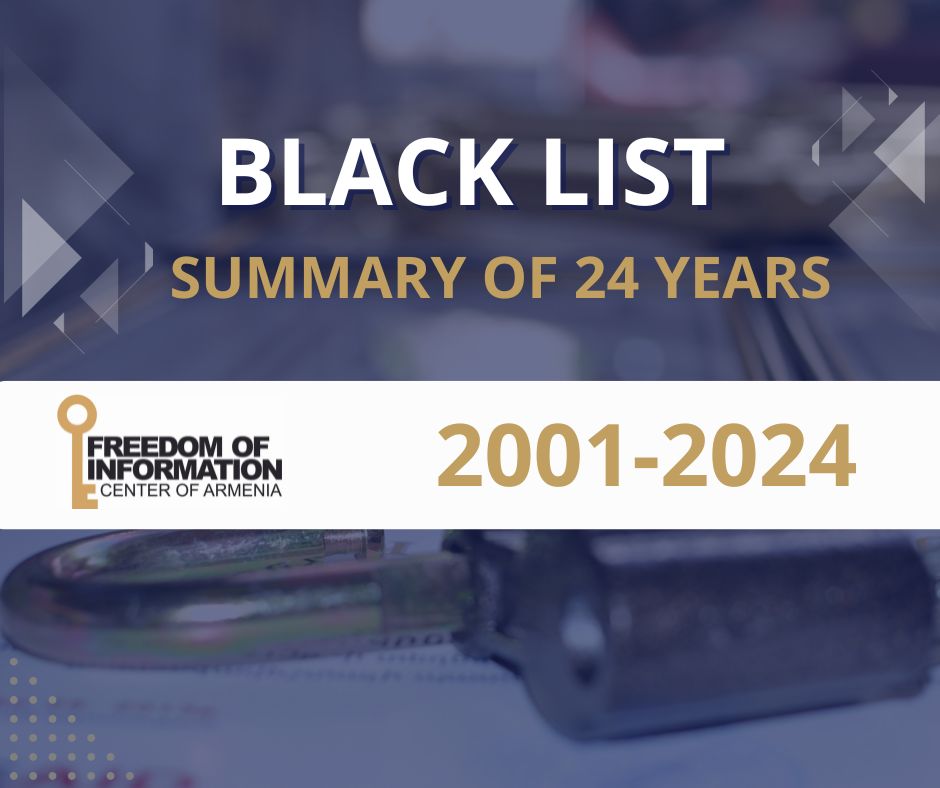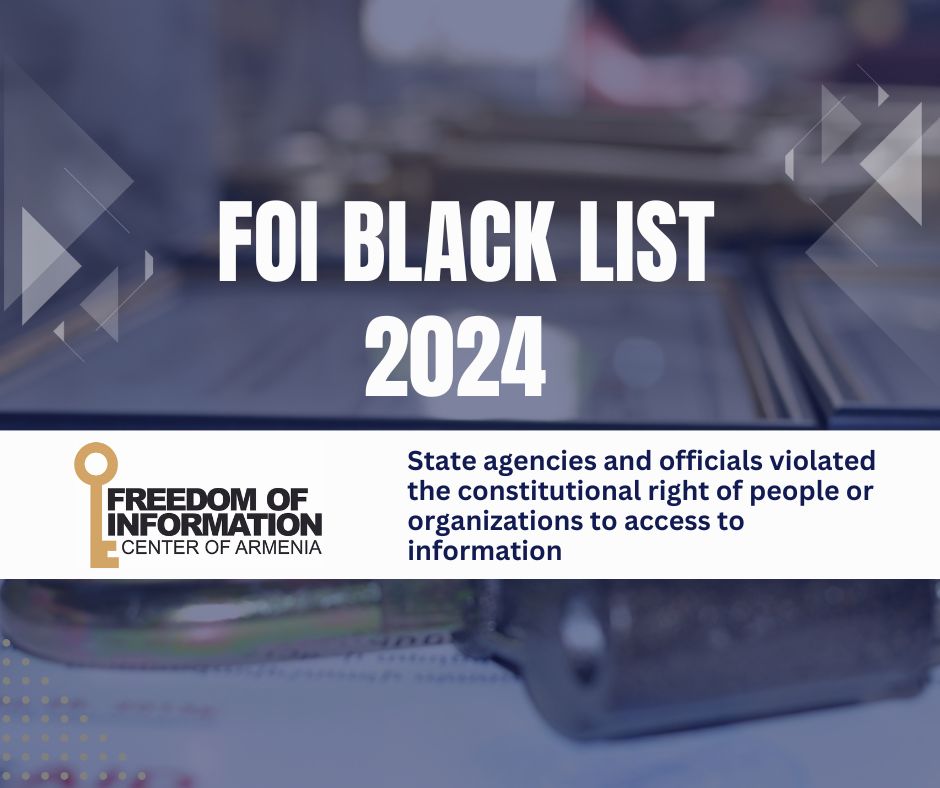On January 24, 2025, the Freedom of Information Center sent an information request to 25 state agencies to determine whether they had published official annual statistics on information requests. The Center also requested data on requests received via the e-request platform and in written/paper format.
As the provided responses and the FOICA’s observations indicate, as of February 13, 2025, 18 of the monitored state agencies have published their annual statistics on information requests. However, the 2024 statistics are still unavailable on the official websites of seven agencies.

Although these agencies still have time to fulfill the legal requirement, it is already evident that this legislative provision has been violated. More than 30% of those that have published the 2024 statistics have failed to provide the reasons for denials.
Among the agencies that have published statistics, the State Revenue Committee and the Ministry of Education, Science, Culture, and Sports have presented information request statistics within their general monthly document circulation reports, which, however, do not include data on the grounds for denials. Although the Ministry of Labor and Social Affairs has published the data in a separate report, it also lacks references to the grounds for denials. The Cadastre Committee and the Ministry of Territorial Administration and Infrastructure have published the 2024 statistics in a free-text format, without specifying the number of denials or their grounds. The National Security Service has also failed to disclose the number of denials and the reasons behind them.
Based solely on the summaries of the 18 state agencies that have published statistics, it can be stated that over 1,200 requests were denied in 2024. The highest number of complete denials of information requests occurred at the State Revenue Committee (732 requests).
The annual statistics on information requests published on the official websites of state agencies are difficult to compare and cannot be consolidated into a single table for analysis. In other words, they do not serve their intended purpose due to their lack of uniformity.
The Freedom of Information Center has addressed this issue multiple times in previous years. In 2021, the Center developed and provided state agencies with a unified template for publishing information request statistics, yet the situation has scarcely changed compared to the previous year.
To present the 2024 statistics on information requests, the FOICA’s template was used by five agencies: the Ministry of Economy, the Ministries of Internal Affairs and Environment, the Statistical Committee, and the State Control Service.
The most requests were received through the e-request platform
According to the responses from the agencies, the Ministry of Internal Affairs received the highest number of requests (7,118), followed by the State Revenue Committee (2,952) and the Ministry of Economy (2,388). The lowest number of requests was received by the National Security Service, with only 139 requests.

Some agencies do not maintain separate statistics for paper-based requests
State agencies continue to receive requests in written/paper format, but we cannot publish an exact total. In 2024, some agencies did not maintain separate statistics for such requests. Last year, the 23 agencies under observation received more than 2,870 paper-based requests. The highest number of paper-based requests were received by the State Revenue Committee (1,462), the Ministry of Finance (814), and the National Security Service (393).
Conclusion
- In summary, we can state that state agencies continue to publish the annual statistics on information requests at their discretion.
- One-third of the examined state agencies have violated the requirements of the Law on Freedom of Information by not publishing the grounds for denials.
- It is noteworthy that although the Prime Minister’s office publishes request statistics in the format developed by the FOI Center, it has yet to be adopted as a standard unified tool.











